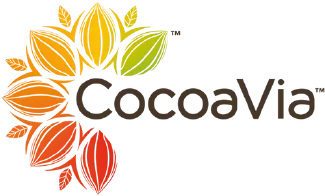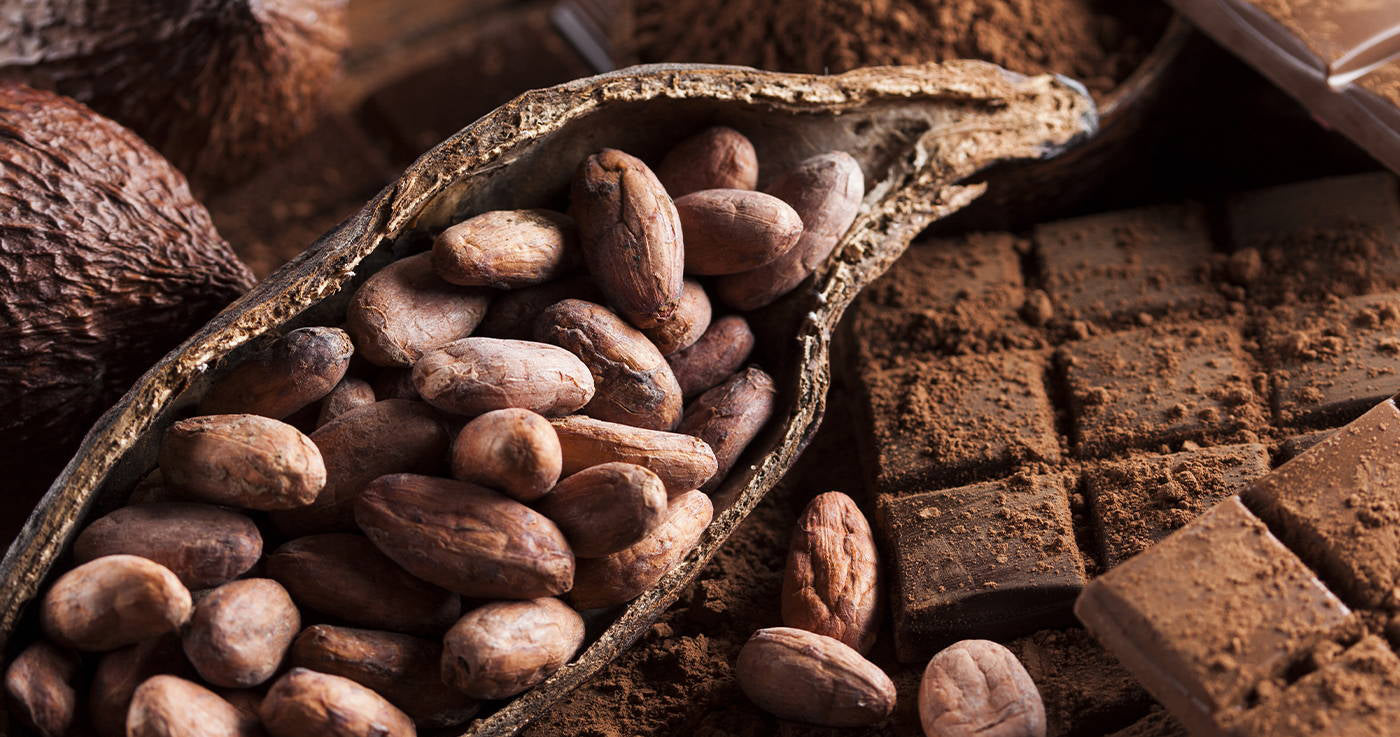
Cocoa vs. Chocolate: What’s The Difference?
Did you know?
- Cocoa flavanols have been clinically proven to improve memory and brain function, and studies show they support heart health.
- Milk chocolate is required to have 10% cocoa content, while baking chocolate has much higher cocoa content.
- Natural unsweetened cocoa powder contains some cocoa flavanols, but not nearly enough as some more pure cocoa extracts.
Are cocoa and chocolate synonymous? And if so, is chocolate a health food? Yes, they are both made from cocoa beans. And cocoa beans contain cocoa flavanols, bioactive compounds that have been shown to improve memory, and support a healthy heart. But don't stock your vitamin and supplement cabinet with your favorite chocolate bars just yet. Cocoa and chocolate are not the same. Read on as we explore the difference between the two and how certain cocoa products may – and may not – promote optimum health.
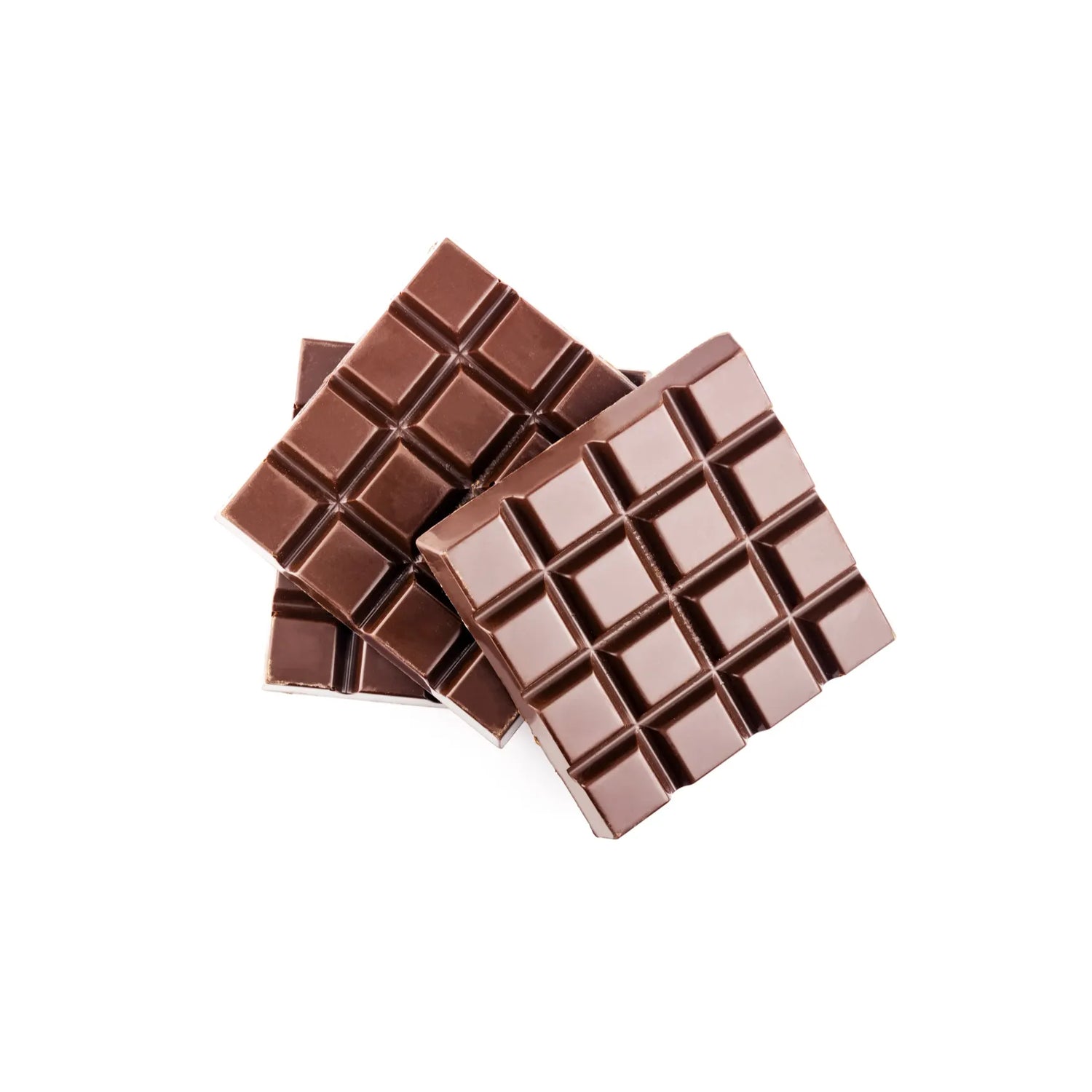
What is Chocolate?
Chocolate. It’s what many of us turn to in times of happiness, stress, or just because. But what exactly is it besides delicious? Chocolate is a food product that comes from the processing of cocoa beans. The beans, which come from the tropical cacao tree, go through a fermentation, drying, roasting, crushing, and grinding process, which produces a non-alcoholic chocolate liquor.1The liquor is mixed with sugar, vanilla, and other ingredients to make chocolate, with different levels of liquor defining the type of chocolate.
"The amount of cocoa flavanols in a serving of chocolate varies greatly and in most cases, you won’t be able to get enough cocoa flavanols from even high percentage dark chocolate to experience any health benefits."
Health Benefits of Chocolate
Cocoa products, including chocolate, contain some of the good-for-you cocoa flavanols. Cocoa flavanols have been shown to increase your body's natural supply of nitric oxide. Nitric oxide is a supermolecule that allows arteries to relax and widen, promoting healthy blood flow and the delivery of essential oxygen and nutrients to every organ, muscle, and tissue throughout your body.
But all chocolate products are not created equal. The amount of cocoa flavanols in a serving of chocolate varies greatly and in most cases, you won’t be able to get enough cocoa flavanols from even high percentage dark chocolate to experience any health benefits. So enjoy chocolate as a treat and not a health food.
"Most commercial cocoa powders are made from cocoa beans that have been alkalized or “dutched” [...] unfortunately, alkalization drastically reduces cocoa flavanol levels."

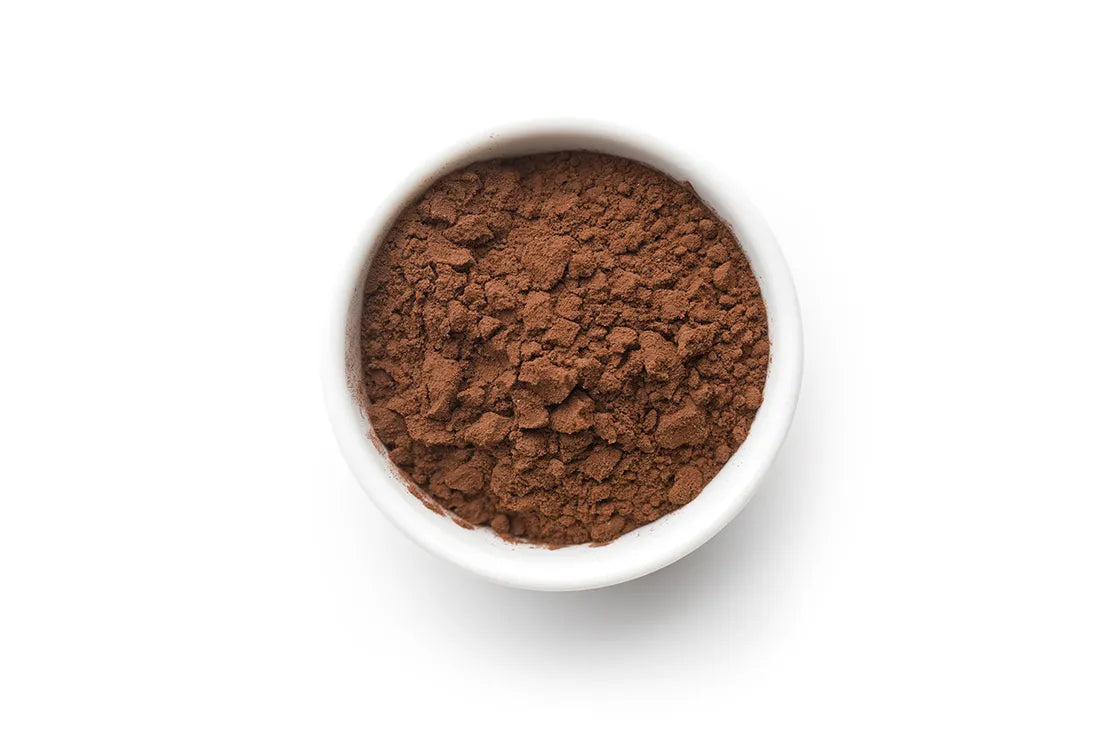
What is Cocoa?
When people refer to cocoa, in most cases, they are referring to cocoa powder. Cocoa powder also comes from the cocoa beans that have been fermented, dried, roasted and then further crushed and ground to make a chocolate liquor. When this liquor hardens, it is pressed to remove much of the cocoa butter, and the remaining material (“cocoa cake”) is ground into a fine powder to produce cocoa powder. Most commercial cocoa powders are made from cocoa beans that have been alkalized or “dutched” to produce a distinctive flavor that most associate with cocoa powder; unfortunately, alkalization drastically reduces cocoa flavanol levels. Natural cocoa powder isn’t alkalized and so it generally contains higher levels of cocoa flavanols.

Health Benefits of Cocoa Powder
Because preserving cocoa flavanols during the extraction process is key, our scientists developed the proprietary Cocoapro® process, which gently extracts cocoa flavanols from high-quality cocoa beans, preserving them in the highest concentration available in a supplement today.
We guarantee one serving of capsules and powder have 500 mg of high-quality cocoa flavanols and will support your heart and brain health by promoting healthy blood flow. Whether you prefer the on-the-go convenience of a capsule or want to enjoy the delicious taste of our powdered stick packs, , make sure you’re getting at least 500mg of cocoa flavanols in your diet every day.
The takeaway: while it’s unlikely you’ll get the health benefits of cocoa flavanols from your favorite chocolate treat, cocoa powder, or a mug of hot chocolate, you do have a convenient, tasty low-fat, low-cal and low-carb option available in CocoaVia™.
Learn more about cocoa flavanols—from health benefits to detailed scientific research—and see the difference for yourself by trying CocoaVia™ products for 30 days.
-
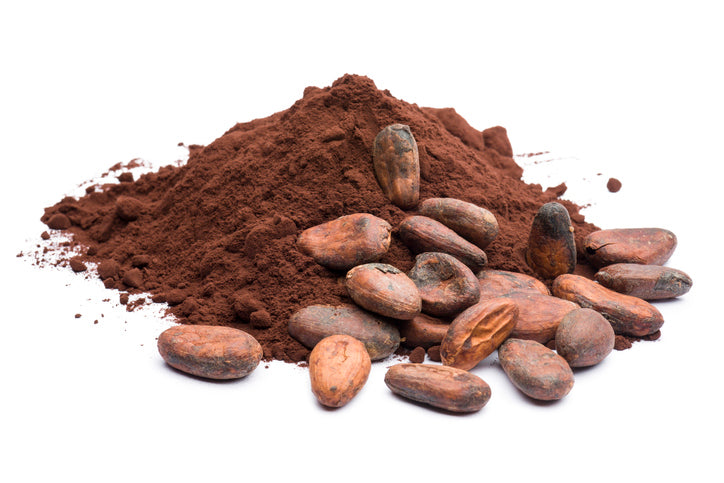
-
The Better Choice for Cocoa Flavanols – Cocoa Extract
While chocolate and cocoa powder both contain some cocoa flavanols, you’d have to consume a lot of chocolate or cocoa powder to get the same level shown to support heart and brain health. One analysis showed that a tablespoon of a natural cocoa powder provided approximately as many milligrams of flavanols as an entire bar of the lowest percentage dark chocolate in the test. Still, most dark chocolates or cocoa powder can’t provide the benefits you’re looking for without consuming them daily in unrealistic levels.
Chocolate is also high in fat, carbs, and calories. And although natural cocoa powder could have a higher amount of cocoa flavanols, like chocolate, it is difficult to easily consume beneficial amounts. As a treat, chocolate (preferably dark chocolate) is absolutely fine. If you are looking for the flavanol benefits, that’s where high quality cocoa extract comes in.
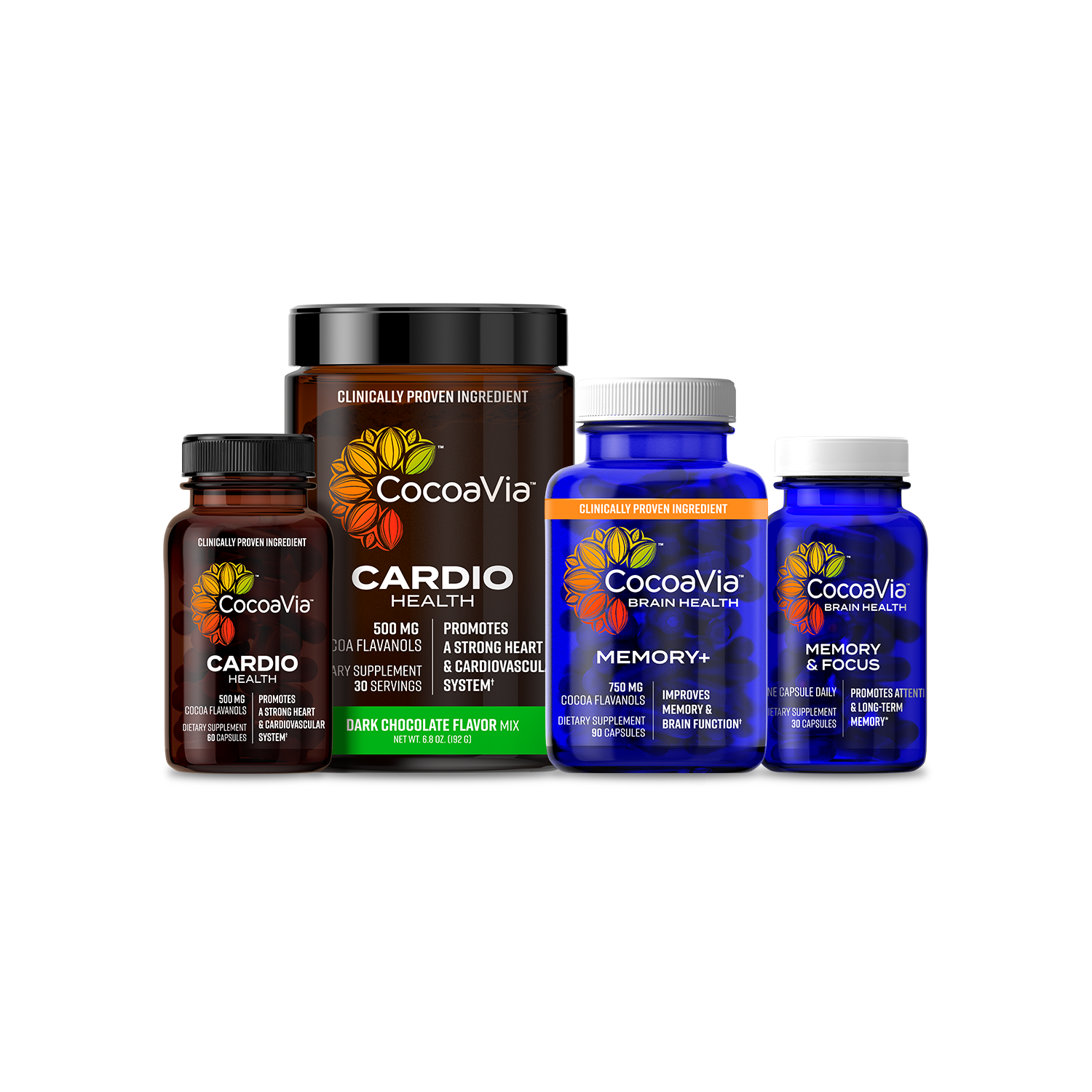
CocoaVia™ Cocoa Extract Supplements
Even cocoa powder and high-percent dark chocolates can’t guarantee the amounts of cocoa flavanols to obtain health benefits. But you can experience benefits like improved memory and a healthy cardiovascular system from the cocoa flavanols in CocoaVia™ supplements. Made with cocoa extract, each serving of CocoaVia™guarantees 450 -750 mg of cocoa flavanols. How do we do it? Our proprietary Cocoapro® process begins with the freshest, highest quality cocoa beans that are carefully handled to preserve their flavanols and involves a gentle extraction process which preserves these flavanols in the highest concentration possible.
Interested in More Cocoa-Backed Benefits?
When taken daily, the cocoa flavanols in CocoaVia™ have been shown to support a healthy heart and brain function, allowing you to be your best every day. Why not bring home the supplement ConsumerLab.com named as the Highest Quality, Top Rated Cocoa Flavanol Product.
Explore our products or See The Science and read about the clinical studies that show the many ways cocoa flavanols can benefit your whole body!
- "Cacao vs Cocoa: What's the Difference?,” Healthline, https://www.healthline.com/nutrition/cacao-vs-cocoa
- Cooperman, Tod, MD. “How much dark chocolate equals a tablespoon of cocoa powder?,” ConsumerLab, July 25, 2017, Let's discuss
- Anderson, Mark, Ph.D. “Dark Chocolates, Cocoa & Cacao Powders, Nibs, and Supplements Review -- Sources of Flavanols,” ConsumerLab, https://www.consumerlab.com/methods/cocoa-powders-and-chocolates-sources-of-flavanols/cocoa-flavanols/
Still curious about Cocoa Flavanols?
-
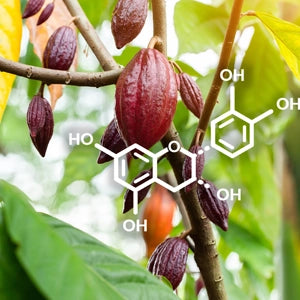
What are Cocoa Flavanols
Continue ReadingLearn about cocoa flavanols and its many health benefits! Learn how cocoa powder, dark chocolate, and cocoa beans can promote healthy blood flow.
-
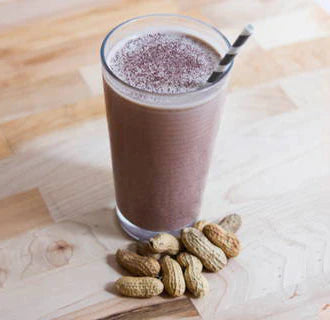
Explore CocoaVia Recipes
Continue ReadingIf you'd like healthy smoothie and drink recipes to incorporate in your day to day, check out our great selection of recipes at CocoaVia today!
-
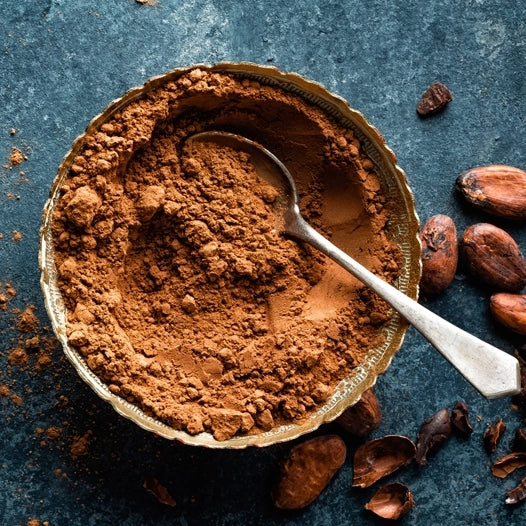
How Many Flavonoids Are in Cocoa Powder?
Continue Reading1 scoop of CocoaVia Cardio Powder gives you 500mg of cocoa flavanols. When you compare this to Cocoa Baking powder - you would need 11 tablespoons to achieve the same cocoa flavanols levels.
